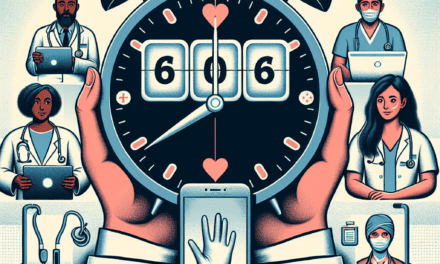UnitedHealth Group Appoints New CISO Following Major Ransomware Incident

In the wake of a significant ransomware attack, UnitedHealth Group has taken decisive action by appointing a new Chief Information Security Officer (CISO). This move underscores the growing importance of cybersecurity in the healthcare sector, where sensitive patient data is increasingly targeted by cybercriminals. This article delves into the implications of this appointment, the challenges faced by the new CISO, and the broader context of cybersecurity in healthcare.
The Ransomware Incident: A Wake-Up Call for UnitedHealth Group
The ransomware attack on UnitedHealth Group was a stark reminder of the vulnerabilities that exist within the healthcare sector. This section explores the details of the incident, its impact on the organization, and the lessons learned.
Details of the Ransomware Attack
In early 2023, UnitedHealth Group fell victim to a sophisticated ransomware attack that compromised the personal data of millions of patients. The attackers infiltrated the company’s network, encrypting critical files and demanding a substantial ransom for their release. The breach not only disrupted operations but also raised serious concerns about data privacy and security.
The attack was executed using a variant of ransomware known for its ability to evade traditional security measures. The perpetrators exploited vulnerabilities in the company’s IT infrastructure, gaining access to sensitive information and causing widespread panic among stakeholders.
Impact on UnitedHealth Group
The ransomware incident had far-reaching consequences for UnitedHealth Group. The immediate impact was operational disruption, as the company struggled to restore access to encrypted files. This led to delays in patient care and financial losses estimated in the millions of dollars.
Beyond the immediate operational challenges, the breach also damaged the company’s reputation. Patients and partners expressed concerns about the security of their data, leading to a loss of trust that could have long-term implications for the business.
Lessons Learned from the Incident
The ransomware attack served as a wake-up call for UnitedHealth Group, highlighting the need for a more robust cybersecurity strategy. Key lessons learned from the incident include:
- The importance of regular security audits and vulnerability assessments to identify and address potential weaknesses in the IT infrastructure.
- The need for comprehensive employee training programs to raise awareness about cybersecurity threats and best practices.
- The value of investing in advanced security technologies, such as artificial intelligence and machine learning, to detect and respond to threats in real-time.
The Role of a CISO in Strengthening Cybersecurity
With the appointment of a new CISO, UnitedHealth Group aims to bolster its cybersecurity defenses. This section examines the role of a CISO, the challenges they face, and the strategies they employ to protect an organization from cyber threats.
Responsibilities of a CISO
The Chief Information Security Officer is responsible for developing and implementing an organization’s cybersecurity strategy. This includes overseeing the security of IT systems, managing risk, and ensuring compliance with relevant regulations.
A CISO must also work closely with other departments to integrate security measures into all aspects of the business. This involves collaborating with IT, legal, and compliance teams to ensure a holistic approach to cybersecurity.
Challenges Faced by a CISO
One of the primary challenges faced by a CISO is the constantly evolving nature of cyber threats. As attackers become more sophisticated, CISOs must stay ahead of the curve by continuously updating their knowledge and skills.
Another challenge is balancing security with business objectives. While robust security measures are essential, they must not impede the organization’s ability to operate efficiently. A CISO must find the right balance between protecting data and enabling business growth.
Strategies for Effective Cybersecurity
To effectively protect an organization from cyber threats, a CISO must employ a range of strategies, including:
- Implementing a multi-layered security approach that includes firewalls, intrusion detection systems, and encryption technologies.
- Conducting regular security audits and penetration testing to identify and address vulnerabilities.
- Developing an incident response plan to quickly and effectively respond to security breaches.
Case Studies: Learning from Other Healthcare Organizations
UnitedHealth Group is not alone in facing cybersecurity challenges. This section explores case studies of other healthcare organizations that have successfully navigated similar incidents, providing valuable insights and lessons for UnitedHealth Group.
Case Study: Anthem’s Response to a Data Breach
In 2015, Anthem, one of the largest health insurance companies in the United States, experienced a massive data breach that exposed the personal information of nearly 80 million individuals. In response, Anthem implemented a comprehensive cybersecurity overhaul, including:
- Enhancing encryption protocols to protect sensitive data.
- Implementing multi-factor authentication for all employees.
- Conducting regular security training sessions for staff.
These measures not only helped Anthem recover from the breach but also strengthened its overall cybersecurity posture.
Case Study: The Cleveland Clinic’s Proactive Approach
The Cleveland Clinic, a leading healthcare provider, has taken a proactive approach to cybersecurity by investing in cutting-edge technologies and fostering a culture of security awareness. Key initiatives include:
- Implementing advanced threat detection systems powered by artificial intelligence.
- Conducting regular phishing simulations to test employee readiness.
- Establishing a dedicated cybersecurity team to monitor and respond to threats in real-time.
These efforts have positioned the Cleveland Clinic as a leader in healthcare cybersecurity, providing a model for other organizations to follow.
The Future of Cybersecurity in Healthcare
As cyber threats continue to evolve, the healthcare sector must adapt to protect sensitive patient data. This section explores emerging trends in healthcare cybersecurity and the steps organizations can take to stay ahead of the curve.
Emerging Cybersecurity Threats
Healthcare organizations face a range of emerging cybersecurity threats, including:
- Ransomware attacks that target critical infrastructure and disrupt patient care.
- Phishing campaigns that exploit human vulnerabilities to gain access to sensitive information.
- Insider threats from employees who may inadvertently or maliciously compromise data security.
To address these threats, healthcare organizations must adopt a proactive approach to cybersecurity, continuously monitoring for new risks and adapting their strategies accordingly.
Innovative Solutions for Enhanced Security
To stay ahead of cyber threats, healthcare organizations are increasingly turning to innovative solutions, such as:
- Artificial intelligence and machine learning to detect and respond to threats in real-time.
- Blockchain technology to secure patient data and ensure its integrity.
- Zero-trust security models that require verification for every access request, regardless of its origin.
These technologies offer promising solutions for enhancing cybersecurity in the healthcare sector, providing organizations with the tools they need to protect sensitive data.
Conclusion: Strengthening Cybersecurity in Healthcare
The appointment of a new CISO at UnitedHealth Group marks a significant step forward in the organization’s efforts to strengthen its cybersecurity defenses. By learning from past incidents and adopting innovative solutions, UnitedHealth Group can better protect its patients’ data and maintain trust with stakeholders.
As cyber threats continue to evolve, healthcare organizations must remain vigilant and proactive in their approach to cybersecurity. By investing in advanced technologies, fostering a culture of security awareness, and collaborating with industry partners, they can effectively safeguard sensitive information and ensure the continuity of patient care.
Ultimately, the lessons learned from UnitedHealth Group’s ransomware incident serve as a valuable reminder of the importance of cybersecurity in the healthcare sector. By prioritizing security and staying ahead of emerging threats, organizations can protect their patients and maintain their reputation in an increasingly digital world.





